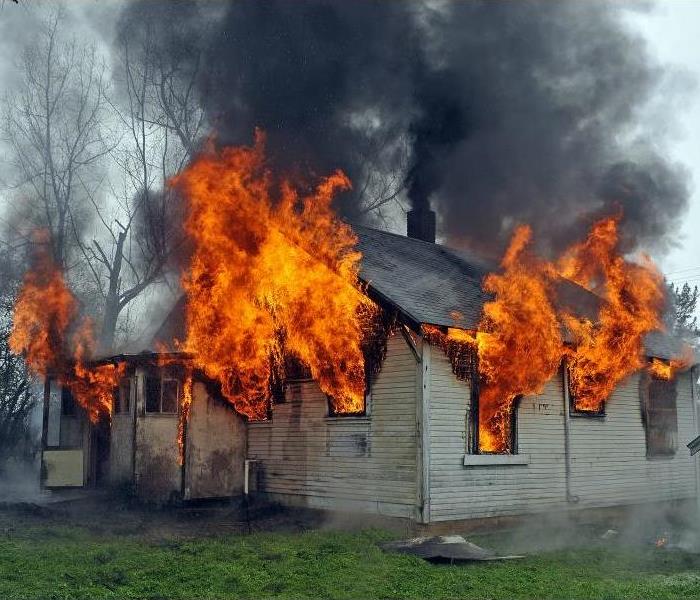Does Liability Insurance Cover Fire Damage?
3/4/2020 (Permalink)
Structure fires can lay waste to homes or commercial buildings in mere minutes, and the resulting damage can be astronomical.
Regardless of how a fire starts—be it a result of neglect, natural disasters, arson, or a ‘perfect storm’ scenario—recovering from a fire is often a long and arduous process. Considering this, it’s no surprise so many home and business owners look to insurance coverage that specifically includes protection against losses due to fires.
With all of the different kinds of insurance you could buy to protect your property from fire damage losses, you might find yourself wondering, “If I buy basic liability insurance, will fire damage be covered?”
SERVPRO of Littleton/Sheridan specializes in fire damage remediation. We know how catastrophic a fire can be, and we understand the disruption they can cause to the normal operation of business or home life. We also know how insurance policies often operate when the time comes to make a claim for fire damage losses. So, in this blog post, we’re going to be answering the question as to whether or not basic liability insurance covers fire damage.
Liability Insurance, Defined
According to Investopedia, liability insurance:
“...provides the insured party with protection against claims resulting from injuries and damage to people or property.”
Here’s an example of how liability insurance might work in the case of a fire:
- A kitchen fire breaks out in a restaurant. The fire causes damage to the physical structure, and there are no injuries.
- The property adjacent to the restaurant incurs fire-related damages. This could be due to smoke exposure or fire propagation.
- The restaurant owner had an existing liability insurance policy. The liability policy included specific provisions for liability coverage in the event of a fire.
- The restaurant owner did not have insurance coverage against fire-related losses for themselves. Whether this insurance wasn’t purchased because of budgetary reasons or some other reason, the restaurant owner has no recourse to recoup the losses to their own property as a result of the fire.
However, because the liability insurance carried by the restaurant protected the business owner from third-party legal action resulting from fire damage, the fire’s impact on the adjacent building would be covered by the liability insurance policy.
When You Think Liability, Think ‘Third-Party’
It’s important to note the distinction between property insurance and liability insurance. When a homeowner buys insurance coverage for their home, that coverage typically includes fire damage that impacts the property in question. However, without liability insurance that specifically protects the homeowner from claims made by a third party, a fire that spreads to a neighboring property might not be covered.
It’s important to dive deep into the terms and conditions of any insurance policy you may be considering for your home or business. Because fire damages can be so costly, it’s worth the extra time to make sure you have a full understanding of what is and what isn’t covered by the policy.
Arson
In some cases, fires are intentionally started by those engaging in a criminal activity. As long as the arsonist was not listed as a beneficiary of the policy that protected the home or business, the fire damage would be covered by the property insurance policy.
Motor Vehicles
Just about every US state has a law that requires drivers to carry Public Liability and Property Damage (PLPD) insurance. This insurance kicks in whenever damage is done to persons or property as a result of an accident caused by the driver.
However, this kind of coverage is restricted to third parties, not to the driver him/herself or the vehicle itself.
So, if a motor vehicle operator who was only covered by basic PLPD insurance strikes a utility pole and starts a fire that totals her car, the PLPD insurance would cover the damage done to the utility pole and any damage to any person or property aside from the insured and her vehicle.
Comprehensive insurance would be required in order for damage done to the vehicle itself to be covered.
Have Fire Remediation Questions? Contact Us
Fire damage doesn’t have to mean ‘the end’ for a home or commercial building. In many cases, smaller fires can leave things looking worse than they may actually be. SERVPRO of Littleton/Sheridan has the tools, techniques, and trained staff needed to restore fire-damaged interiors safely, effectively, and quickly.
If your home or business has been damaged by a fire, contact us to schedule an on-site visit with one of our fire damage experts.

 24/7 Emergency Service
24/7 Emergency Service
